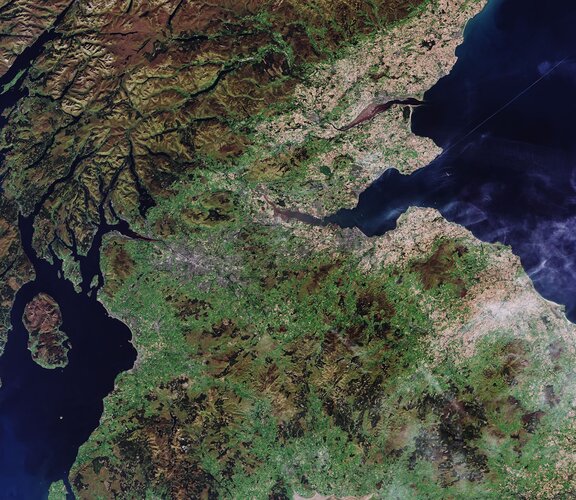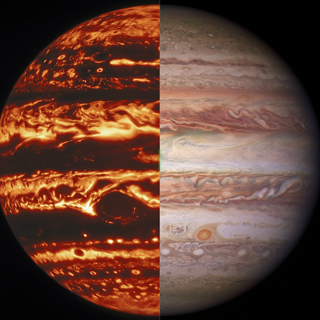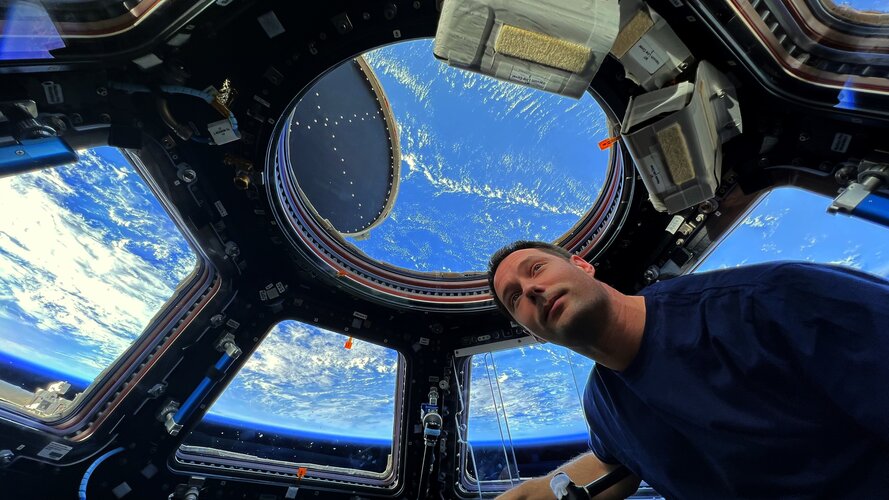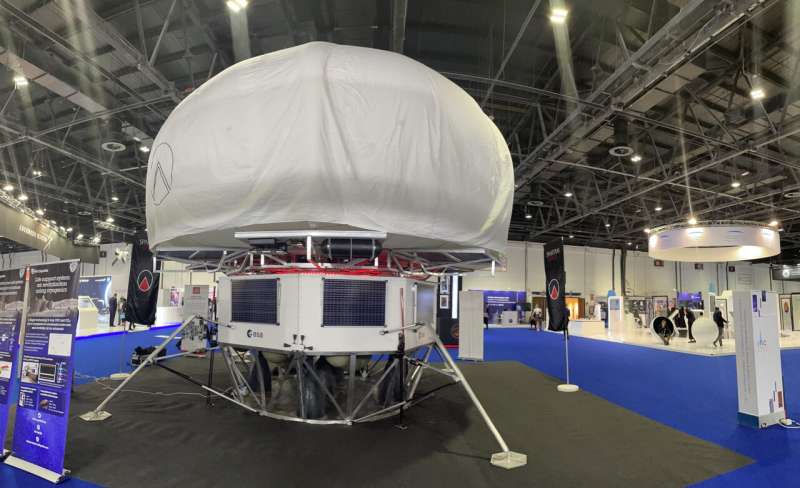
Copernical Team
Making space travel inclusive for all
 In a weightless, microgravity environment like space, what do ability and disability look like? How can someone with partial sight or impaired mobility navigate in a confined space like the space station? As scientists and innovators continue to push the boundaries of spaceflight and the possibility of human life on other planets, how can we build space infrastructure that is inclusive of all hu
In a weightless, microgravity environment like space, what do ability and disability look like? How can someone with partial sight or impaired mobility navigate in a confined space like the space station? As scientists and innovators continue to push the boundaries of spaceflight and the possibility of human life on other planets, how can we build space infrastructure that is inclusive of all hu Capabilities growth shows why US sees China as pacing challenge
 Army Gen. Mark A. Milley pointed to China's recent test of a hypersonic weapon system as an example of why the U.S. military is concerned about Chinese intentions.
The chairman of the Joint Chiefs of Staff spoke on Bloomberg News' David Rubenstein Show and said DOD officials saw the test as "a very significant event."
Pentagon Press Secretary John F. Kirby emphasized that China's dev
Army Gen. Mark A. Milley pointed to China's recent test of a hypersonic weapon system as an example of why the U.S. military is concerned about Chinese intentions.
The chairman of the Joint Chiefs of Staff spoke on Bloomberg News' David Rubenstein Show and said DOD officials saw the test as "a very significant event."
Pentagon Press Secretary John F. Kirby emphasized that China's dev Juno peers deep into Jupiter's colorful belts and zones
 Leicester study of data captured in orbit around Jupiter has revealed new insights into what's happening deep beneath the gas giant's distinctive and colourful bands.
Data from the microwave radiometer carried by NASA's Juno spacecraft shows that Jupiter's banded pattern extends deep below the clouds, and that the appearance of Jupiter's belts and zones inverts near the base of the water c
Leicester study of data captured in orbit around Jupiter has revealed new insights into what's happening deep beneath the gas giant's distinctive and colourful bands.
Data from the microwave radiometer carried by NASA's Juno spacecraft shows that Jupiter's banded pattern extends deep below the clouds, and that the appearance of Jupiter's belts and zones inverts near the base of the water c Satellite maker Terran Orbital strikes $1.58 billion SPAC Deal
 Tailwind Two Acquisition Corp and Terran Orbital Corporation have entered into a definitive business combination agreement. Upon the closing of the transaction, the combined company will operate as Terran Orbital Corporation, with plans to list on the NYSE under the symbol LLAP. The pro forma total enterprise value of the combined companies is approximately $1.58 billion. The transaction is expe
Tailwind Two Acquisition Corp and Terran Orbital Corporation have entered into a definitive business combination agreement. Upon the closing of the transaction, the combined company will operate as Terran Orbital Corporation, with plans to list on the NYSE under the symbol LLAP. The pro forma total enterprise value of the combined companies is approximately $1.58 billion. The transaction is expe Earth from Space: Glasgow

Glasgow, host of the 26th UN Climate Change Conference of Parties (COP26), is featured in this image captured by the Copernicus Sentinel-2 mission.
ESA and NASA launch revolutionary open-source platform

Today, ESA and NASA have publicly released the first globally-harmonised assessment of above ground biomass – information that is vital for managing global climate change. The Multi-Mission Algorithm and Analysis Platform (MAAP) provides seamless access to above ground biomass information from both NASA and ESA Earth observation data. The revolutionary open-science tool is now fully operational and accessible online.
NASA’s Juno: Science Results Offer First 3D View of Jupiter Atmosphere
 New findings from NASA’s Juno probe orbiting Jupiter provide a fuller picture of how the planet’s distinctive and colorful atmospheric features offer clues about the unseen processes below its clouds.
New findings from NASA’s Juno probe orbiting Jupiter provide a fuller picture of how the planet’s distinctive and colorful atmospheric features offer clues about the unseen processes below its clouds. Alpha Mission Overview
 Video:
00:03:00
Video:
00:03:00
ESA astronaut Thomas Pesquet from France began Alpha - his second mission to the International Space Station - on 23 April 2021. Launched from Cape Canaveral in Florida, USA, on the second operational flight of SpaceX Crew Dragon, he has now spent around six months in orbit on mission Alpha. In addition to science experiments, he has taken part in four spacewalks and countless scientific investigations. On 4 October Thomas became the fourth European International Space Station Commander. He is now the ESA astronaut with the most total time spent in space and on spacewalks.
A call for a methodical approach to identifying life beyond Earth

A team of space scientists at NASA has published a Perspective piece in the journal Nature calling for the establishment of a methodical approach to identifying life beyond Earth. In their paper, the group suggests the space science community begin using a "confidence of life detection" (CoLD) scale, similar in some respects to others used in the science community, such as the TRL scale NASA uses to chart the readiness of new technology to be used on missions.
Noting that science, technology and space exploration efforts have led humanity to the point that it might be possible to find evidence of life on Mars or elsewhere—and further noting that in the past, discoveries surrounding the possibility of life in other places, most often on Mars, has led to widespread speculation and often criticism of those reporting the evidence—the authors suggest a new approach may be needed. They suggest the adoption of the CoLD scale and outline its seven levels.
The first level would be assigned if detection of a biosignature suggested life might have been found. That would kick off the second level, which would involve ruling out other factors such as contamination.
Image: Lunar lander in Dubai

This mockup of ESA's European Lunar Logistics Lander (EL3) is currently on display at the International Astronautical Congress in Dubai.
The versatile EL3 will be used to land cargo on the lunar surface in support of crewed expeditions as well as to host science payloads, potentially enabling sample returns as well.
This EL3 Landing and Descent Element mockup was created for ESA by startup Spartan Space in France. In practice this segment will be attached to a payload-hauling Cargo Platform Element, the subject of a study by ESA's Concurrent Design Facility (CDF).

